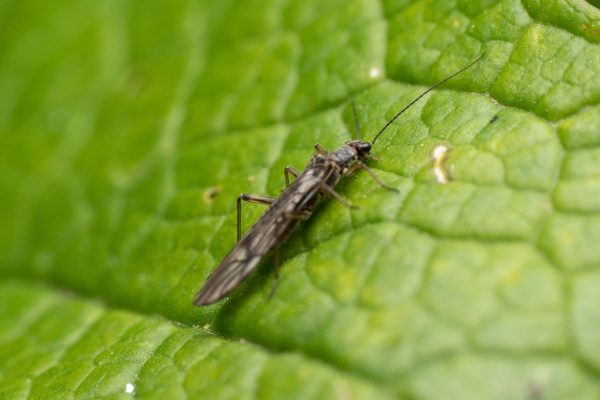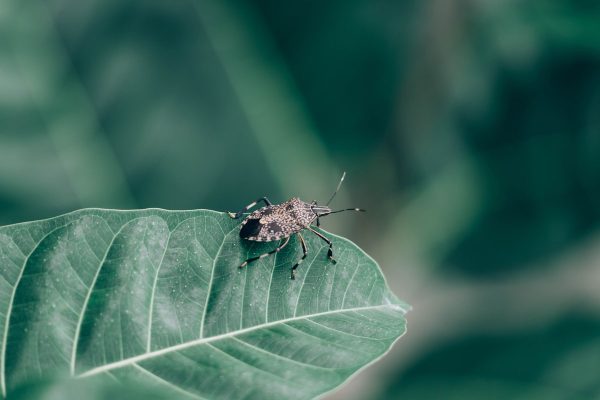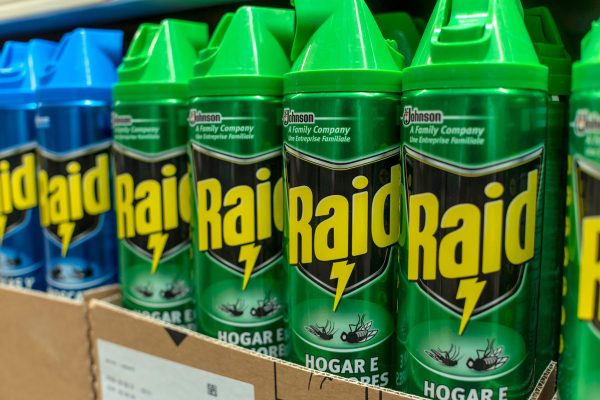Aphids can cause so much damage to your plants which is why you have to find an effective solution to control their infestation. Will Spinosad work? That's what we'll talk about today. We asked the pest experts and here's what they have to say.
Spinosad can kill aphids. Once these pests come into contact or ingest Spinosad, it will affect their nervous system and cause paralysis and death. Spinosad can eliminate aphid colonies in one to two days.
Keep on reading to find out more about how Spinosad affects aphids and if this is recommended by experts. We'll also tell you how fast aphids spread and why they keep coming back to your garden. Then, we'll share tips and recommendations on how to control these pests the natural way. Let's get started!
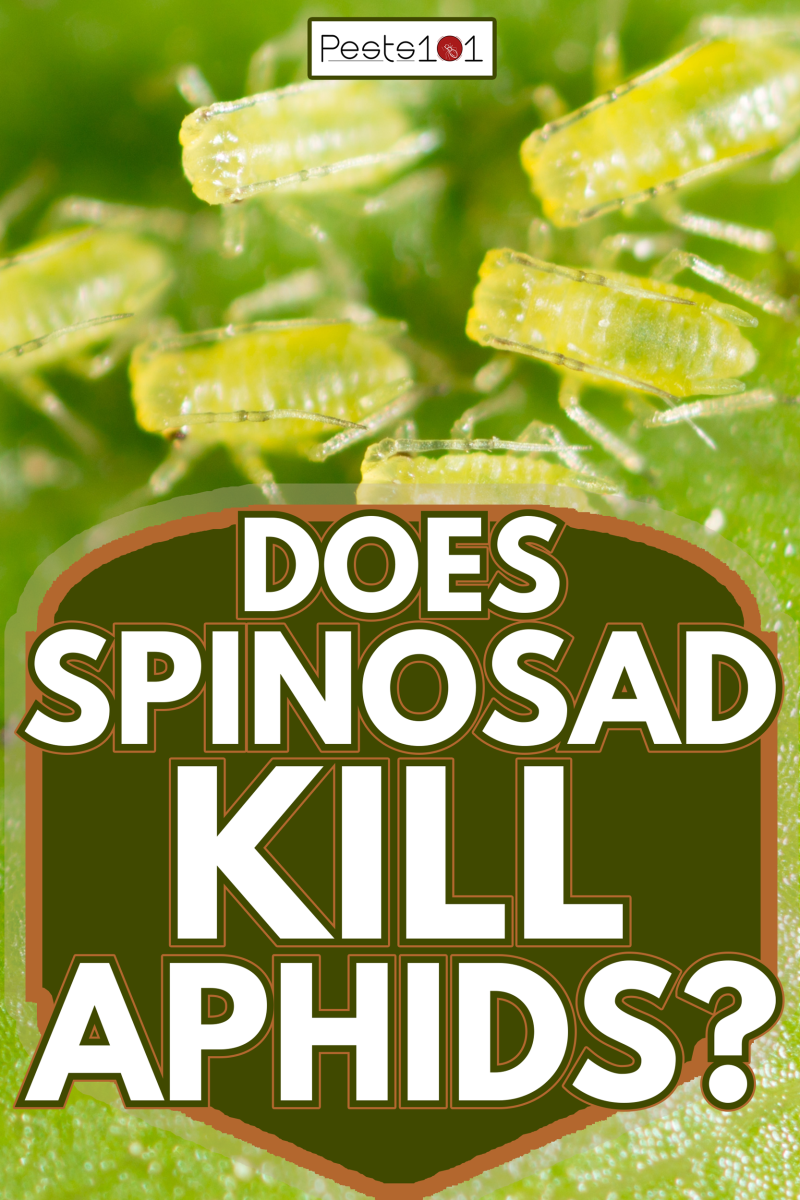
Does Spinosad kill aphids on contact?

Spring brings new growth of lovely plants but, watch out because it can also signify the start of aphid infestation. These pests are attracted to the growth of new plants and the refreshing juices that flow from them. They can multiply quickly especially when the weather is warm.
Aphids are small and soft-bodied insects. Because of their greenish brown color and size, it might be hard to see them aside from they usually like to stay under the leaves. Some aphid species attack the roots of plants and trees. Before you know it, you might have an aphid infestation in your garden.
Don't be deceived by their size though. These insects can bring great damage to your plants in different ways. They love to feast on the leaves which will destroy the plant structure.
They can also pass on the diseases that they've acquired from other plants to your plants so that's double whammy for gardeners.
Aphids also produce a sticky substance called honeydew which attracts other insects like ants to the plant. It also causes sooty mold to develop on the plant's surface.
That's why you should put a stop to the infestation at the first sign that you see. If you have Spinosad in your stock reserved for situations such as this, it's time to bring it out. Spinosad is said to be able to kill aphids among other pests.
How Spinosad Works
Spinosad is one of the most popular and trusted insecticides. It is made from natural ingredients, particularly from fermented soil-dwelling bacteria Saccharopolyspora spinosa. It has a low level of toxicity which makes it safe to use on ornamental and edible plants.
Check out this insecticide with Spinosad concentrate on Amazon.
It can also be used both indoors and outdoors because it presents low health risks to humans, wildlife, and the environment especially when used properly.
Spinosad is a broad-spectrum insecticide and aphids are one of the species of pests that it can eliminate especially since these pest species have soft bodies.
Once the aphids come into contact or ingest this pesticide, the chemicals will target their nervous system. They'll slow down and suffer which eventually leads to their death. Spinosad works fast and can kill aphids in one to two days.
However, experts don't really recommend using Spinosad on aphids. Being a broad-spectrum insecticide, it can also harm beneficial insects such as bees and ladybugs.
How fast do aphids spread?
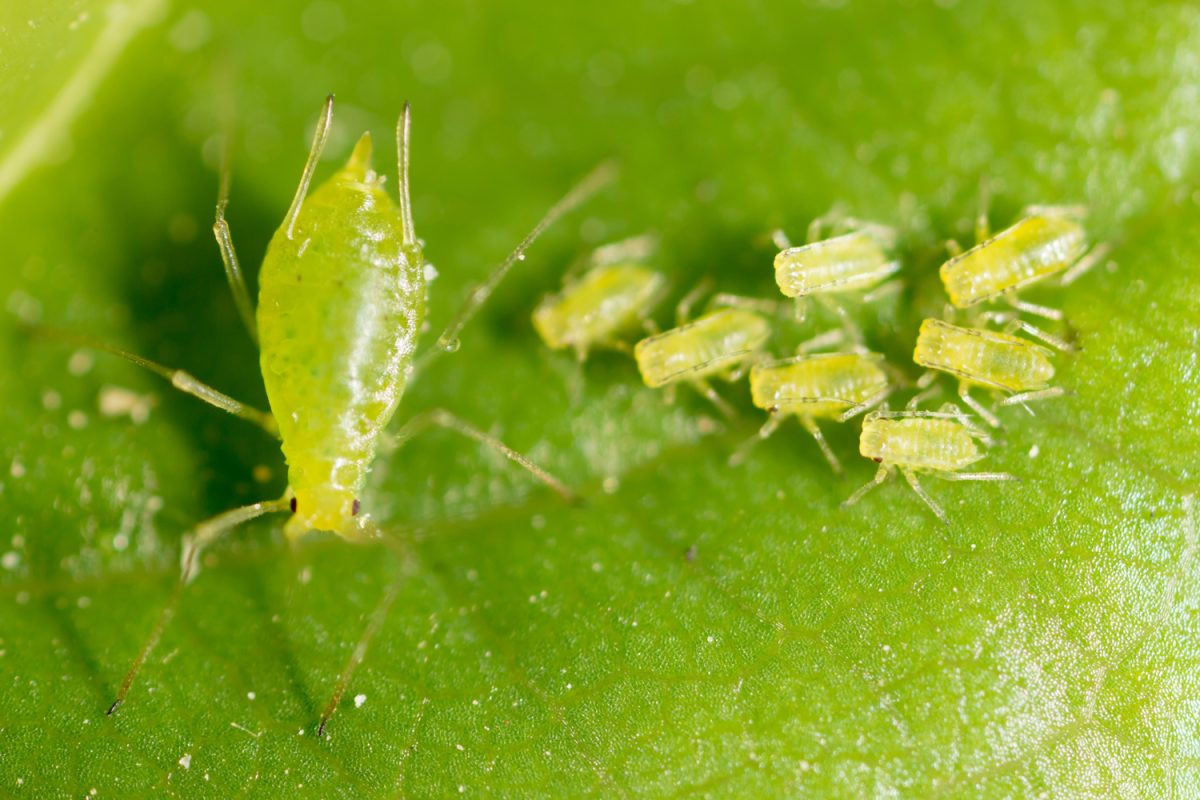
Aphids are small but terrible. They literally suck! They feast on the plants' juices as these are their main source of nutrition. They transfer from one plant to another to satisfy their nutritional needs. They are in a continuous search for food sources.
And the most concerning part for gardeners is how fast they build their colonies resulting in a problematic aphid infestation.
Reproduction & Life Cycle
Aphids reproduce asexually. The warm weather condition is conducive to the reproduction of mature female aphids. They create colonies by laying eggs on one plant and then moving on to another plant.
The life cycle or transition from nymph to adult aphids only takes about a week after which the new generation is able to produce their new offspring. Also, some female aphids give birth to live aphids that are already pregnant by the time they are born.
When the weather gets colder, the eggs are preserved. Aphids plant them in the root section of the plants. The eggs are quite hardy and they are protected beneath the soil which is why they are able to survive extreme environmental conditions. They wait it out until the weather gets warmer again.
Aphids have a lifespan of about one month but since they multiply quickly and spread from one plant to another, the colonies persist until you do something about the infestation.
Experts say that for every aphid that dies, 100 other aphids take its place. If uncontrolled, you can just imagine how many aphids will plague your garden in just one season.
If you're using Spinosad as a pest control measure, you need to apply it every week and make sure that the entire plant and soil are well-coated with this insecticide. This is a preventive measure so that you can stop the spread of aphids and the damage that they cause to your garden.
Why do aphids keep coming back?
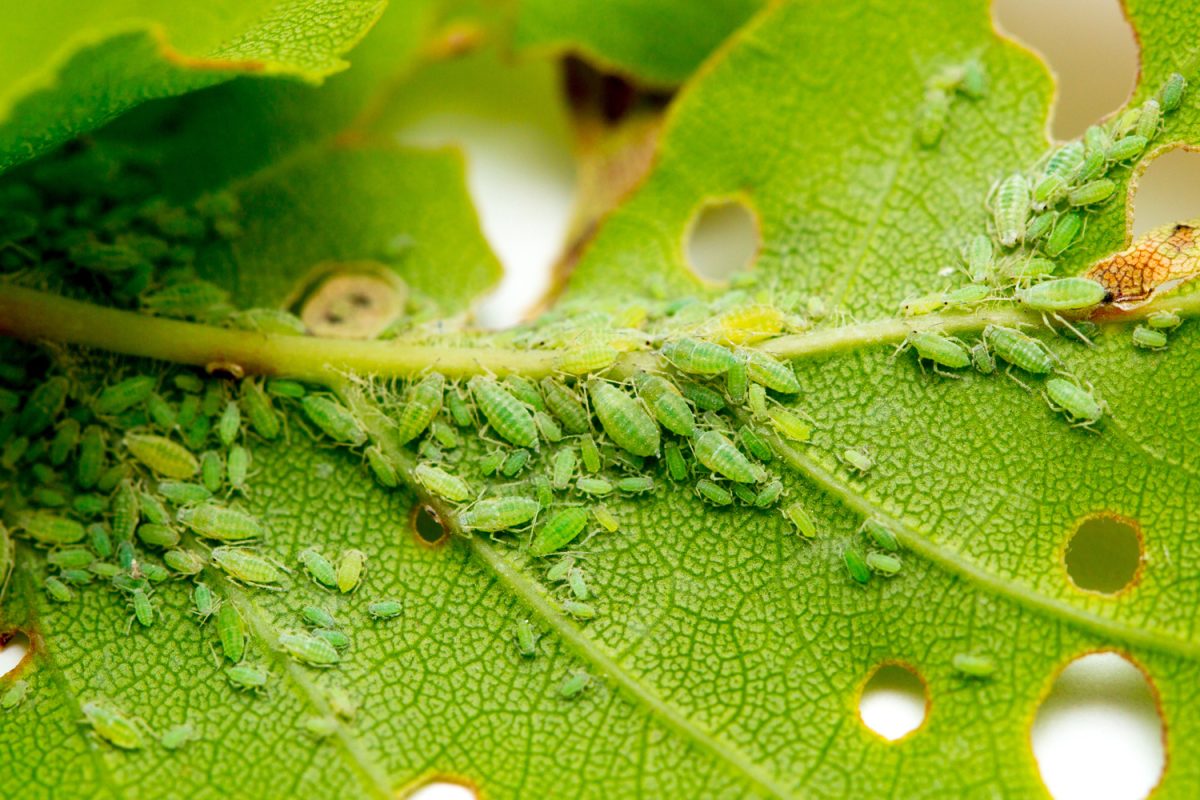
For those trying to get rid of aphids, you might think that all your efforts are futile. These pests seem so resilient! Just when you thought you've killed the entire colony, they are alive and kicking again in the next few days. Why does it seem like an endless battle? Here are some of the reasons we've identified.
Aphids as Reproduction Machines
As mentioned above, aphids multiply quickly. Aside from giving birth to live aphids that are already pregnant, they also lay eggs. The eggs transform to adults in a week's time.
They also lay eggs in preparation for winter and these eggs will wait until the weather gets warmer before they hatch and transform again into a whole new generation of aphids the next spring season. In this sense, it is an endless cycle.
Piggyback Ride on Other Insects
When small aphids fall off from the plant, it is hard for them to come back to their original position. But they still have some fight left in them so that they can hold on to their food source. They climb on the back of adult aphids or other bugs so they can take them to higher portions of the plant.
This means that instead of dying on the soil or ground, they live for another day and will get stronger once they've had their fill of the nourishing sap from the plant once again.
Feast on Your Garden
Infestation happens when colonies of aphids feast on the plants in your garden. When they're done sucking the juices of one plant, they move on to the next one. Your garden is their buffet and they're loving it!
Hiding in Your Garden
Aphids hide in the tiny nooks and crannies of the plants. They do this to keep themselves safe from other insects and animals that threaten to eat them.
Once settled in these small places, they will reproduce again which would result in more infestation in your garden.
These are just some of the reasons why aphids infestation is so difficult to treat without the proper know-how.
How do I control aphids in my vegetable garden?

Finally, we get to the part where we give you tips and recommendations on how to eliminate and prevent aphid infestation in your precious vegetable garden. Here are some of the natural things that you can do.
- Plant plants. You can plant plants that drive aphids away because of their natural smell. Other plants that you can put in your garden are those that serve as bait for these pests. Once they invade these plants, you can just cut them out to clear your garden from these insects.
- Use systemic insecticides. Since these are absorbed by the plants, the aphids, and other insects that feast on the roots, stems, and leaves will die upon contact and ingestion of the pesticide.
- Use essential oils. There are different EOs that are available in the market which are effective in driving these pests away from your garden. These are thyme, rosemary, peppermint, and lavender.
- Keep your plants healthy. Make sure they have enough water, sunlight, and fertilizers. Pests such as aphids prey on unhealthy and weak plants because these are easier to devour.
Click here to see thyme oil on Amazon.
Aside from doing the above recommendations, you also have to stay vigilant and watch out for any sign of new infestation so that you can immediately apply the necessary control measures.
Final Thoughts
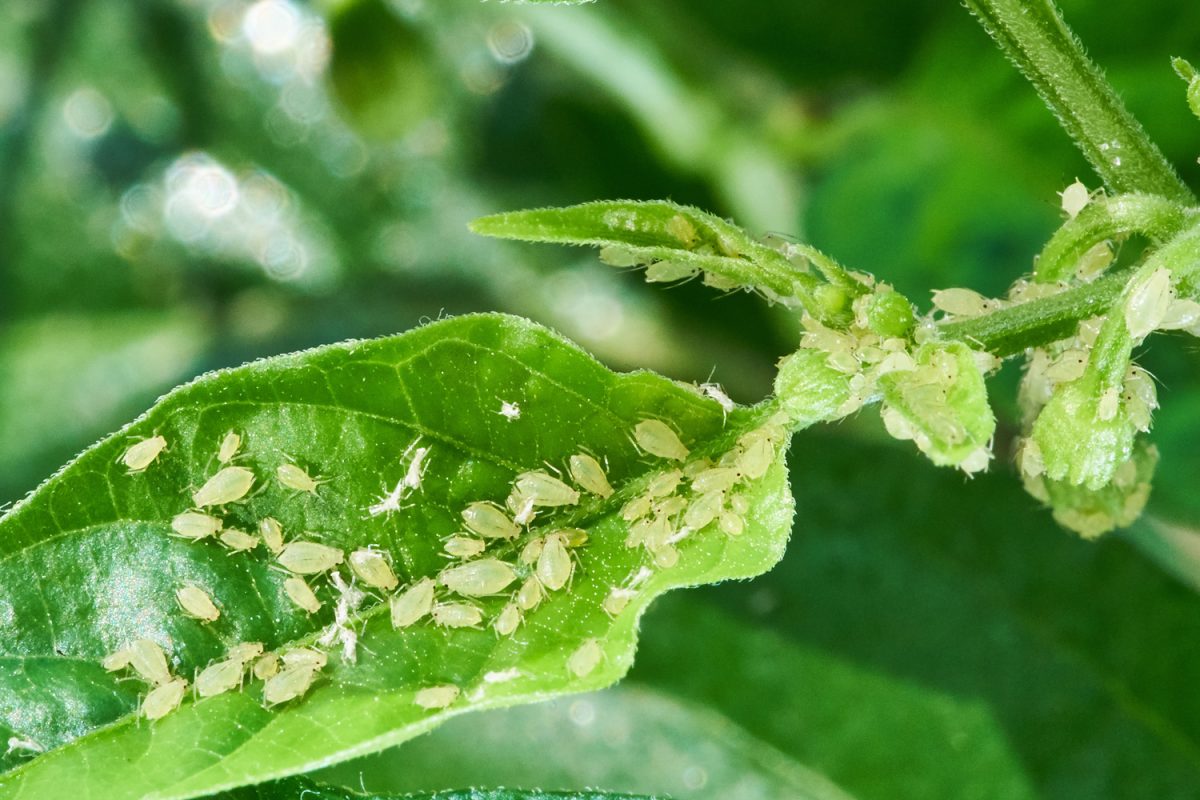
Spinosad can kill aphids if applied properly. However, this insecticide isn't recommended to use as it can harm even the beneficial insects in your garden.
Feel free to visit the following posts if you also want to read about springtails that could also be present among your plants:



